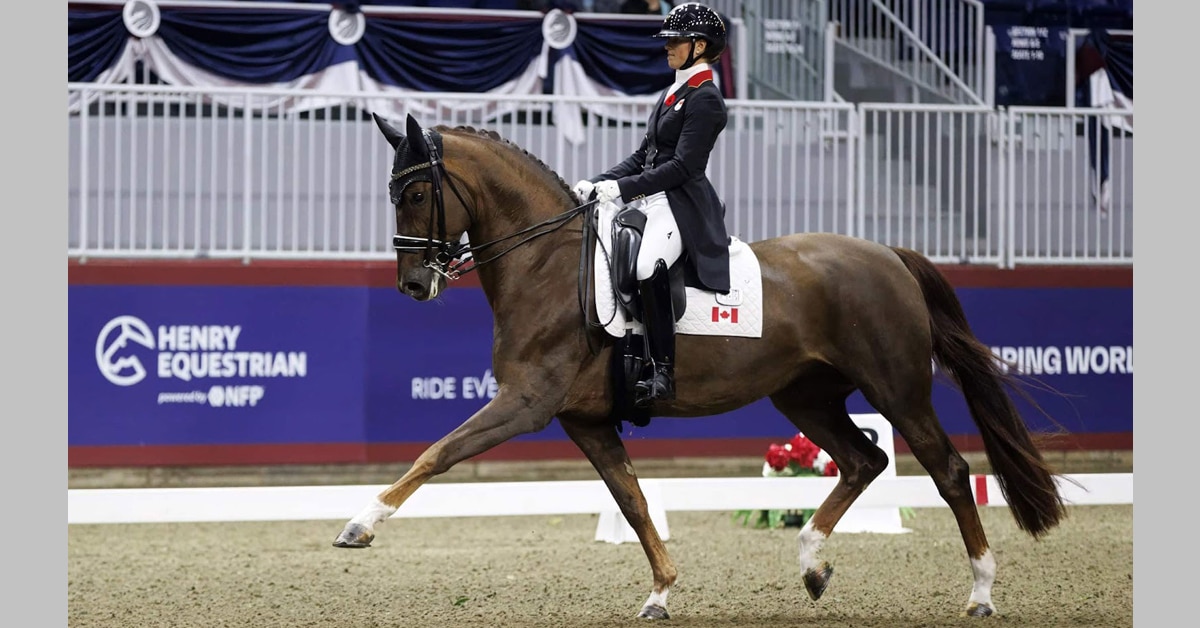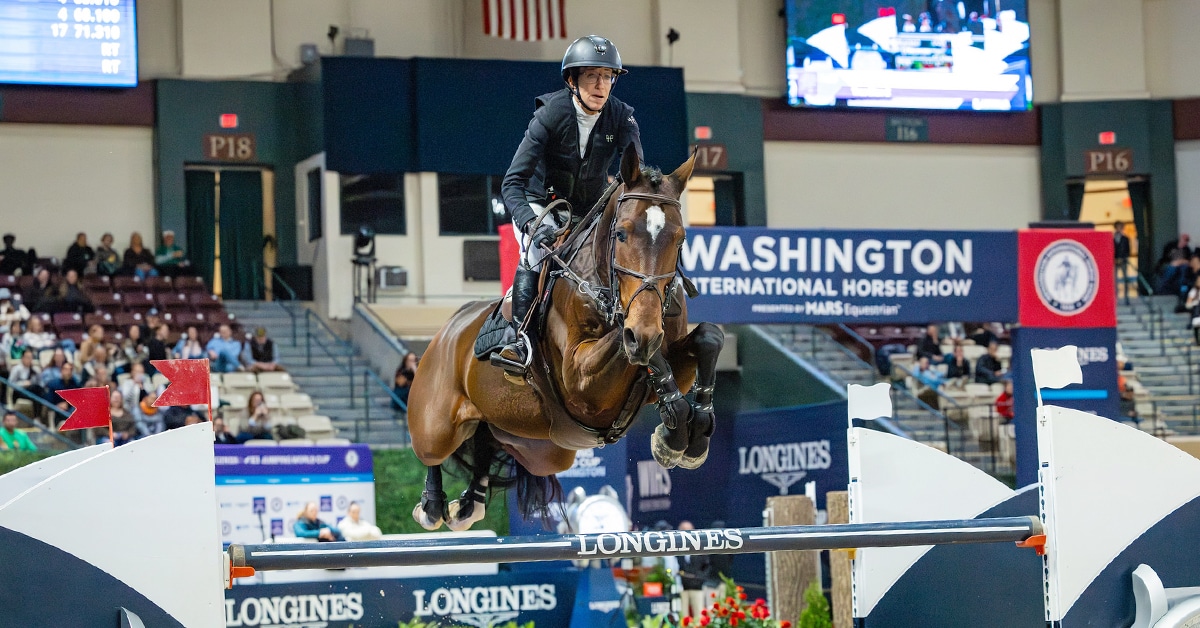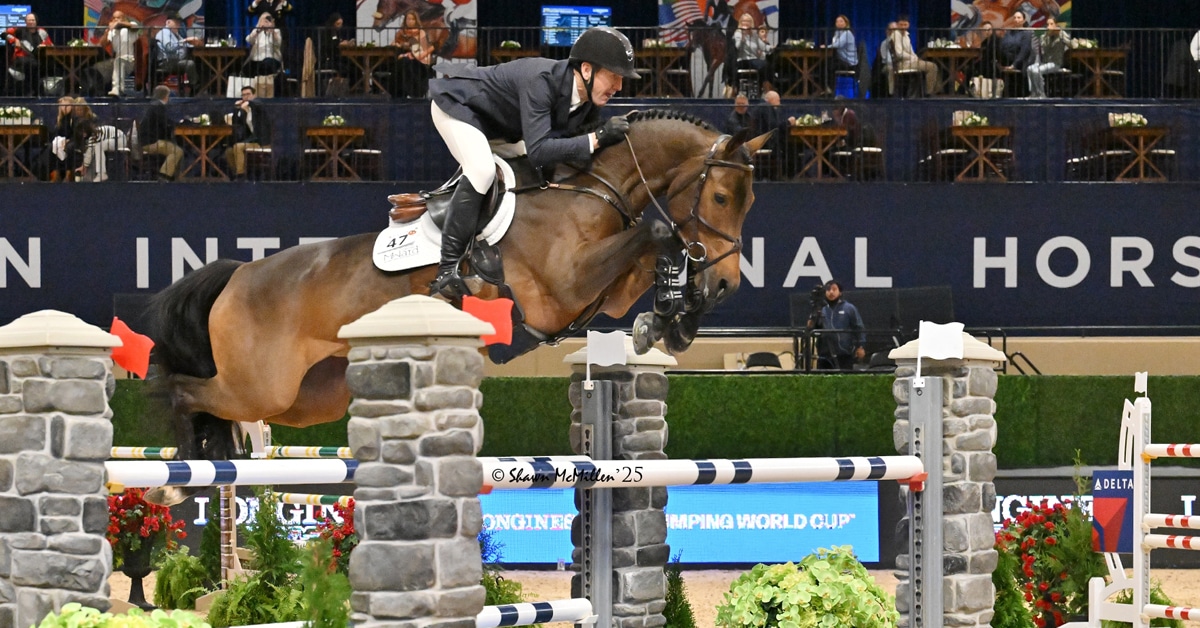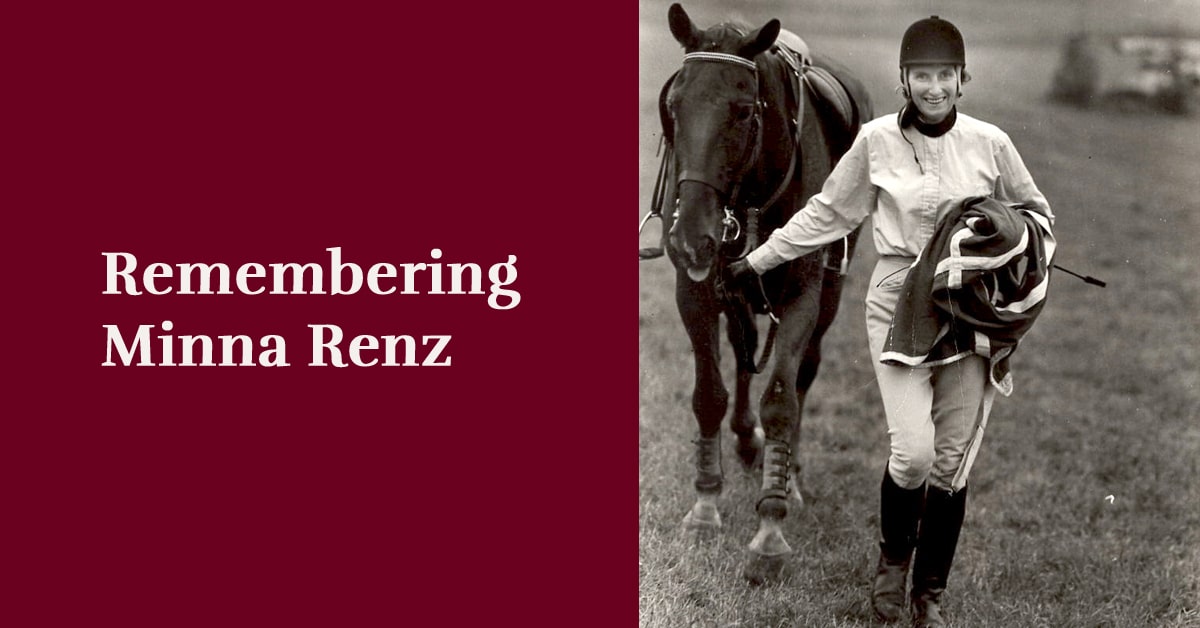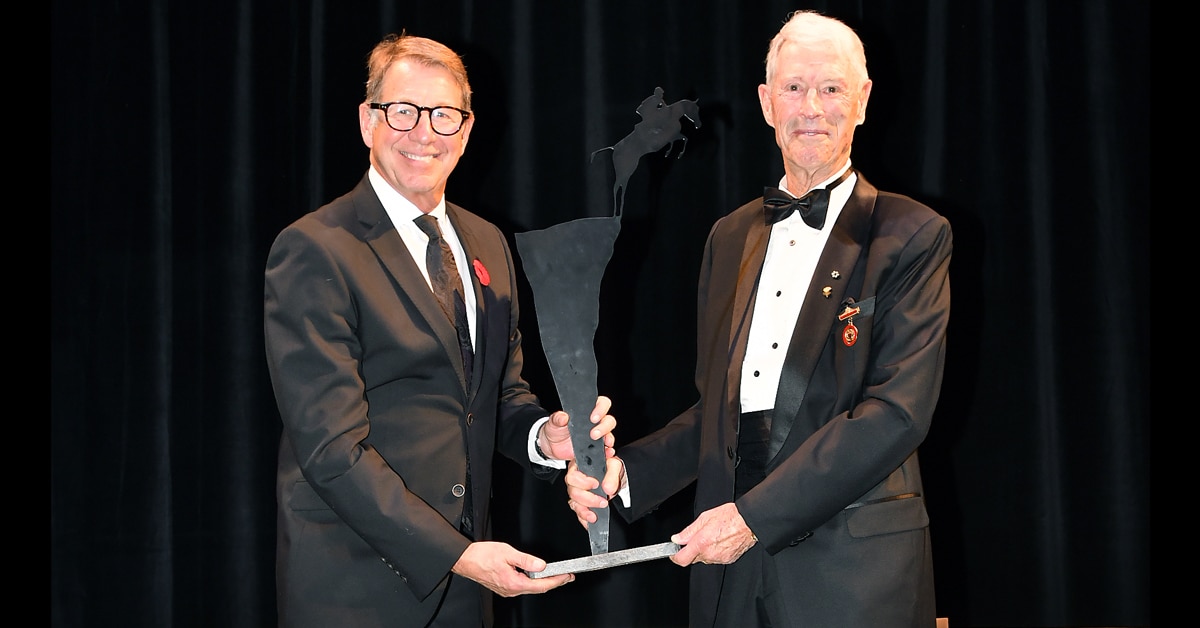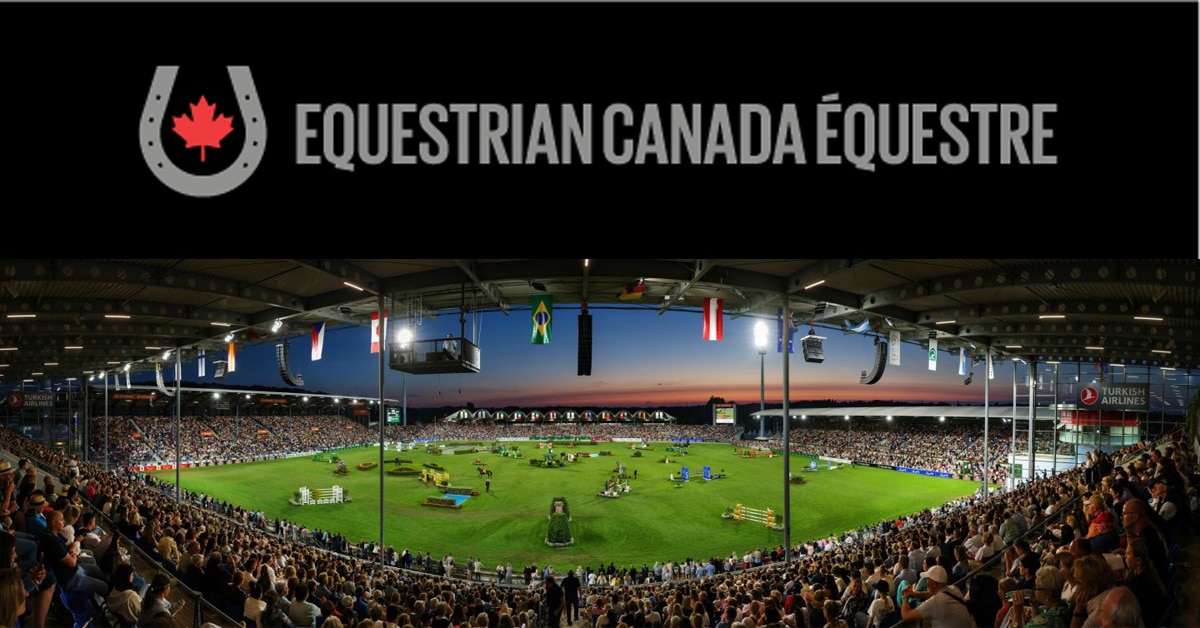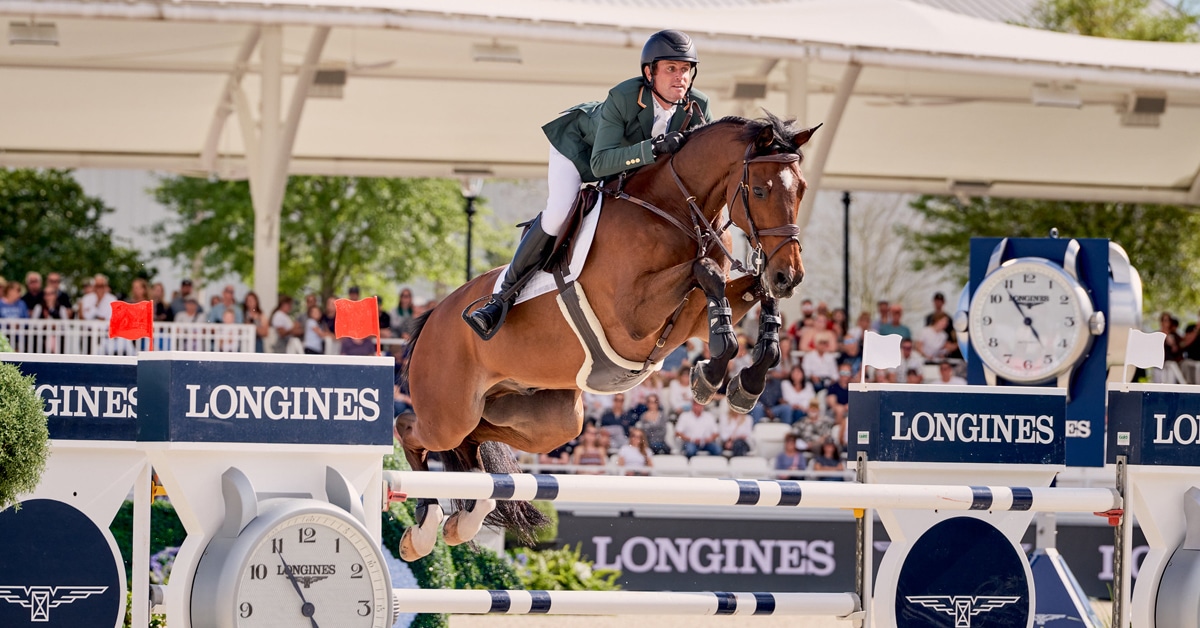British jumping riders face a further Brexit headache which could seriously reduce their international participation and drop them down the Longines rankings.
The increased costs of around E2,500 (CAN$4,800) per cross-Channel trip and delays of many hours at French border control have been well documented since Brexit took effect on January 1. On top of that, as non-European Union (EU) citizens, Brits are now subject to the Schengen Agreement which limits stays in Europe to 90-days in every 180-day period. Unused days cannot be rolled over, and overstaying can result in heavy fines.
Some riders have consulted specialist immigration lawyers while others are considering permanent relocation, fearing their normal competition schedule is now unsustainable. Many jumpers, including amateur riders, spend January through March on the Mediterranean “sunshine” circuit alone.
Why is the 90-day rule more troublesome for jumpers than the other disciplines? The UK domestic jumping circuit has shrunk at advanced levels over the past 20 years, while jumping riders competing abroad have increased exponentially. More than 280 are currently FEI-registered, compared with 84 in 2010.
Only 16 or 17 CSIs are staged annually in the UK ‒ variously the 4* and 5* events at Hickstead, Royal Windsor, Olympia, Bolesworth and Liverpool, leaving just a few catering for the 1* and 2* market. Even the world famous Horse of the Year Show is a CSI3*.
By contrast, in non-pandemic years there are 120 CSIs in France, 80 in Belgium and 65 in the Netherlands, many within half a day’s drive of the port of Calais. Even with Covid-related cancellations, those three countries staged 100 CSIs between them last year.
The decline of the UK circuit has been hotly debated for years ‒ is it cause or effect of the annual rider exodus over the English Channel? For casual observers, that is probably hard to square with the international profile of its biggest names ‒ gold medallists at the past two Olympic Games, and Ben Maher and Scott Brash perpetually in the world top 10.
After years of under-funding and negligible demand, the UK calendar would not be able to stage significantly more rankings classes at short notice. Moreover, many producers developed their businesses around the previously easy access to the European marketplace. Horses at the middle levels can be sold for 20-30% more in Europe than in the UK.
Up-and-coming Nations Cup rider James Wilson, who competes in the Global Champions League, has engaged a specialist Dutch lawyer to obtain working and staying permits in the Netherlands. James would normally spend over 200 days a year in continental Europe, and for obvious logistical and welfare reasons prefers to rest his horses there rather than ship them home to England for a week or so. James’s partner, Heather Larson, also a rider, estimates the permit process and legal help will cost around E2,500.
“I hope that we will be able to submit the application by the time we leave for the Sunshine Tour at the end of February,” said Heather, currently in Holland and now accumulating necessary letters of endorsement and proof of funds.
“I know this doesn’t help people who don’t want to move out of the UK, but for the time being I really don’t think James and I have any other option. A lot of people wanting to compete abroad regularly will end up having to do this, too.”
Emmy Freeman-Attwood has instructed a British immigration lawyer on behalf of her daughter Lily, stable jockey to British team-member Guy Williams, and for Guy and his support team. In a normal year they spend 70 days on the sunshine circuit, slightly less time abroad during the summer, and 60-odd days in Europe in the last quarter of each year.
“The lawyer has represented the Formula One [motorsport] governing body to allow visa-free travel for drivers to compete globally and without time restrictions in any area ‒ essentially border and time-free movement globally. The visa is only valid for competition, not for example, sponsorship campaigns,” said Emmy.
“The financial implications of Brexit for riders are huge, with a 700% increase in travel costs. Having to keep returning to the UK to stay within the 90-day limit will be financially prohibitive, not forgetting the logistical nightmare of organising what used to be so easy.”
Sarah Lewis produces horses at the 2* level and unexpectedly finds herself at the centre of the growing lobby for unlimited touring, circulating information and tackling politicians. She is frustrated by misunderstanding of her discipline’s specific needs, the only one in which world rankings have a direct bearing on show invitations.
“British dressage riders compete overseas, but not as much as the jumpers, and the eventers have plenty of events here, actually some of the best in the world,” said Sarah.
“It is poorly understood quite how much jumpers need the European shows and the European market. Maybe the other disciplines are not quite as focussed on selling, and they are definitely not so dependent on needing the shows. I don’t think it is understood that we really do not have the shows we need in the UK.
“The 90-day rule is a big problem for all itinerant sportsmen and women, tennis especially and also winter sports who need to train overseas for lengthy periods. I presume tennis also has some sort of comparable ranking system [to the FEI’s] where you need to do tournaments to get into tournaments.”
Governing bodies seem to have differing priorities over the 90-day rule.
A spokesman for British Equestrian said, “We realise the impact [of the 90-day rule] for many, particularly the jumping fraternity and where we feel the FEI can really help our cause. It’s still very early days on this one – but high on the agenda. There will be other athletes from a range of sports who this also impacts.”
However, the FEI told Horsesport.com that it is not currently working on the 90-day rule. A FEI spokesman said: “The FEI is aware of the issues created by the 90-day rule for UK athletes looking to compete in European Union Member States.
“The FEI, through its membership on the IHSC Task Force for Brexit and EU Animal Health Law, is lobbying at the very top level of the EU Parliament to improve the movement of horses between the UK and EU Member States post-Brexit, as this is currently problematic. However, we have not been asked to lobby on behalf of UK athletes about this 90-Day rule, which is a national issue.”
DCMS, the UK government department responsible for sport and the arts, is already fielding desperate pleas about the 90-day rule from other sectors.
Legendary round-the-world yachtsman Robin Knox-Johnston is calling for visa-free touring. Around 30,000 Brits keep boats in EU waters and lobbied the UK government about visa-free arrangements well before Brexit but saw “ little will to address the 90/180 problem in the corridors of Westminster” because of the pandemic. Track and field athletes have launched a petition as have the cyclists.
Unlike sport, the arts have a joined-up approach to Brexit, using big names such as Ian McKellen, Patrick Stewart, Elton John and Simon Rattle in their lobby for visa-free touring for actors and musicians. Last week DCMS promised to appeal immediately on their behalf to individual European states, a “more likely success route” than EU-wide agreement.
More News
